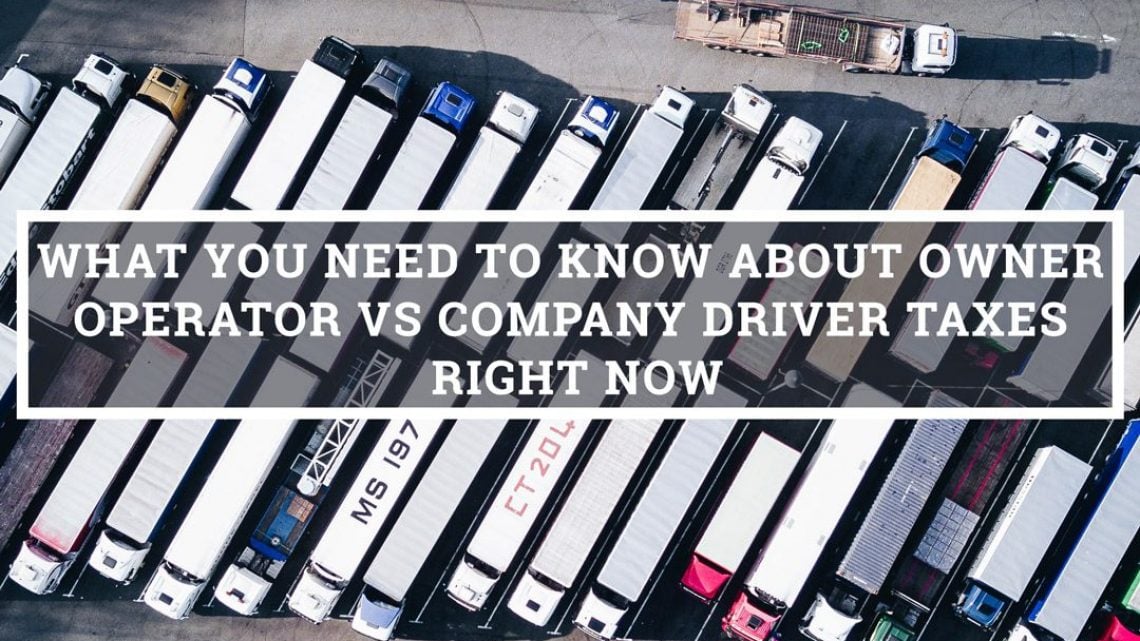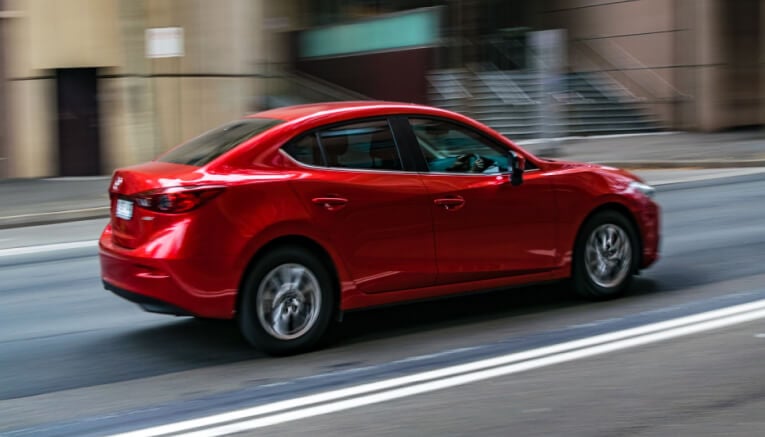Whether you operate a trucking business under your own authority or you lease from a trucking carrier, most expenses incurred while running your commercial trucking business are tax-deductible. Essentially, a tax deduction is referred to as work-related expenses that significantly reduce your reported annual income and therefore your tax liability.
As a driver who operates a commercial truck or has a trucking business, you incur a lot of expenses daily. In fact, the trucking business incurs unusually high and significant amounts of expenses compared to many other industries. That’s why the IRS offers several tax deductions for the industry that trucking business owners/operators should leverage.
Tax Deduction Requirements
Before you can be eligible to claim tax deductions as a truck driver, the Internal Revenue Service (IRS) requires that you must have a “tax home.” Your tax home is known as your regular place of business, or your usual starting point for your trips. If you do not have a regular place of business, then your tax home may be wherever you work.
This is referred to as being an “itinerant”. Apart from that, you should also have an address that will be included in your tax return. Usually, this is the address where you will continuously receive your mail and updates on tax deductions. Particularly, this address could be the headquarters of your business and the development of your particular residence.
In short, you won’t be eligible for tax deductions on business and travel expenses if you do not have your “tax home.”
Filing Taxes for Company Drivers vs Owner-operator
The tax filing process is a little different for the two types of owner-operators: Self-employed vs independent contractors. If you’re an independent contractor driver, then you should get your 1099 issued by your client.
Owner-operators who self-drive use form 1040 which contains schedule C and that includes their business expenses and earnings. One can either use standard deductions or itemized deductions, whichever lowers taxable income most given you kept detailed records of your expenses.
However, if you have employee drivers, they should be enrolled in payroll and given a W-2 form. If you’re an owner-operator with independent contractors as drivers, you should issue a 1099 form to your drivers for filing taxes.
Tax Deductions for Truck Drivers
Here are a few of the common business expenses that truck drivers and owner-operators should consider while filing their tax deduction requests. However, you need to be extremely attentive to details and keep all the receipts of your expenses and other essential records throughout the years. This will be used as proof to the IRS (Internal Revenue Service) officials when needed.
Travel Expenses
This aspect of tax deductions is specifically broad. Expenses incurred by a truck driver while working on the road are considered tax-deductible. Some of these include transportation to and from meals as well as lodging and other expenses.
It also extends to the cost incurred for postage of any required mailing that will be sent from the driver while on the road to the employer. In this category, toll booth payment, as well as truck parking costs, should also not be overlooked.
Usually, there are different ways to record these expenses. All you need to do is to check out the requirements of the IRS in your state for more information. On the other hand, if you have already designed a standard allowance method, you can then proceed with calculating your daily expenses while on the road such as meals, lodging, and incidental expenses allowance with the use of per diem rates set in the IRS Publication 1542.
Associations
As a truck driver or owner of a commercial trucking business, you are expected to be affiliated to a particular union or other collective trucking bodies. It may interest you to note that the dues required for being a member of these groups are entirely deductible. Apart from that, voluntary membership is also covered by tax deductions if the employee can be certified to assist in their chosen field.

Medical Exams
As with many other workers, truck drivers are also required to participate in a series of medical tests and examinations. Drivers that have been requested for medical examinations prior to employment are also eligible for deductions on the out-of-pocket money incurred. These deductions are regarded as business expenses and not medical expenses.
Truck Maintenance Costs
Do you know that most of the maintenance costs for your truck are tax-deductible? Regardless of whether you are on lease from the company or work as an employee or you own your truck, expenses that are associated with the maintenance and cleaning of the truck are deductible. Some of these things include oil changes, new tires, batteries, sponges, CB repairs, truck accessories and parts, cleaning supplies, and a host of other unplanned repairs.
Work-Related Fees
When it comes to obtaining and maintaining a commercial driver’s license, the costs incurred are tax-deductible. Further, the cost incurred for any class or training to proceed further in your education while still working as a truck driver are also generally deductible.
Other work-related fees include:
- Drug testing fees
- Driver license renewal fees
- DOT physical exams
- Sleep apnea study costs
Telephone and Internet Access
The Internal Revenue Service is well aware that mobile phones, as well as wireless internet laptops, are necessary for the smooth operation of many truck drivers. Apart from that, it is also widely believed that these tools are essential for personal use even while drivers are on the road.
This is why truck drivers are provided with the opportunity to deduct up to 50% of the cost of access fees. The entire costs incurred while purchasing mobile phones or laptops are also entirely deductible
Fuel
Truck drivers are allowed to deduct their out-of-pocket cost of fuel incurred during the course of daily operations. This will be reimbursed as long as it doesn’t exceed the threshold of $100. If you pay more than $100 out-of-pocket for business purposes, you can deduct some of the expenses with the standard IRS mileage rate.
Other Miscellaneous Fees
Uniforms, Office supplies, sleeper berth items, eye examinations, safety glasses, and many other miscellaneous items are all tax-deductible. A thorough list of items that you can deduct from your work in trucking can be found here and here.
Additional Deductions for Owner-Operators
Truck owner-operators can use the standard per diem methods to claim tax deductions on expenses. However, it’s good to use the actual cost method and keep track of all expenses since owner-operators are allowed to deduct the additional cost.
As an owner-operator, you can deduct interest payments made on the loan for the truck purchase, any leasing fees, and insurance premium payments for the truck. Owner-operators can also deduct the depreciation cost of their truck in a particular tax year that it was owned and used in your trucking business.
Claiming Your Truck Driving Deductions
In general, truck drivers must be aware of the specific rules for claiming deductions. It’s important to take note of changes to not miss out on any tax deduction opportunities or avoid over-claiming deductions.
Every business indeed has its unique style of employment and tax situations and it’s no different for trucking. If there are further questions and concerns about a particular tax deduction that applies to your situation, you should not hesitate to seek financial advice from a tax professional near you.









